Plot
The story opens with the family of Ivan Shtchevbakoff; a generally harmonious family that does rather well for itself. They were on good terms with their neighbors, the family of Gabriel Chormoi, until one day when a hen that belonged to the Shtchevbakoff family flew into the yard of the Chormoi family and laid several eggs. Later that day, Ivan's daughter-in-law went to retrieve the eggs, but grandmother Chormoi takes offense at being accused of stealing. A huge uproar ensues that embroils every member of each family.
Against the advice of the family elders to seek quick reconciliation, the families bring cases against each other in court, and they blame each other for every little mishap that happens to befall them. Every accusation makes the enmity grow, the children learn from the example of their parents, and the feud goes on for six years.
The elders urge for the families to forget their differences, but the feud continues. A drunken Gabriel strikes one of Ivan's daughters-in-law, and Ivan eventually sees to it that he is sentenced to flogging. Gabriel is shocked, and he curses his neighbor. The magistrate urges the two to reconcile, but Gabriel refuses.
Ivan eventually begins to feel sorry for Gabriel, but he refuses to see his own wrongdoing in the quarrel. Ivan's father urges him to reconcile, and to stop wasting his time and money going to court, and to stop setting a bad example for his family. Ivan still refuses to reconcile.
Eventually Gabriel sets Ivan's house on fire. No neighbors will help Ivan save his belongings, and eventually the fire overtakes Gabriel's house as well. Ivan's father is burned in the fire, and, on his deathbed, Ivan's father asks his son whose fault the fire was. Ivan finally realizes that it was his fault, and asks forgiveness from his father and from God. His father urges Ivan never to tell that it was Gabriel that had set the fire, and Ivan agrees.
Gabriel and Ivan again became good friends, and their families lived together as their houses were rebuilt. The families then go on to become more prosperous than ever, all for following the elders' advice: to quench a spark before it becomes a fire.

The House of Tolstoy, or Tolstoi, is a family of Russian gentry that acceded to the high aristocracy of the Russian Empire. The name Tolstoy is itself derived from the Russian adjective tolstyj. They are the descendants of Andrey Kharitonovich Tolstoy, who moved from Chernigov to Moscow and served under Vasily II of Moscow in the 15th century. The "wild Tolstoys", as they were known in the high society of Imperial Russia, have left a lasting legacy in Russian politics, military history, literature, and fine arts.
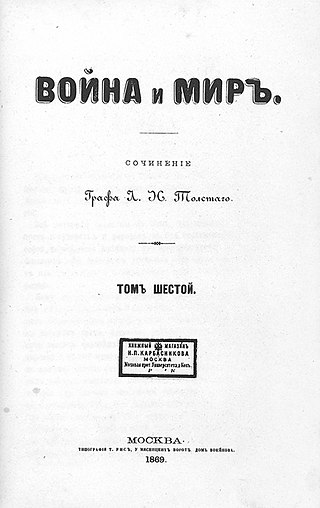
War and Peace is a literary work by the Russian author Lev Tolstoy. Set during the Napoleonic Wars, the work comprises both a fictional narrative and chapters in which Tolstoy discusses history and philosophy. An early version was published serially beginning in 1865, after which the entire book was rewritten and published in 1869. It is regarded, with Anna Karenina, as Tolstoy's finest literary achievement, and it remains an internationally praised classic of world literature.
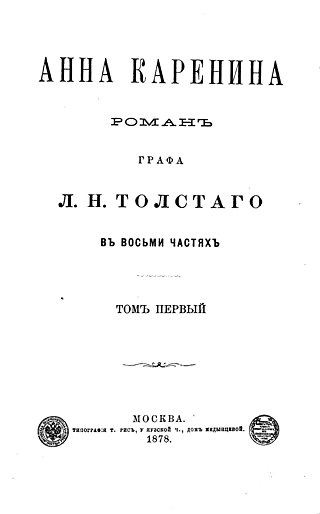
Anna Karenina is a novel by the Russian author Leo Tolstoy, first published in book form in 1878. Considered to be among the greatest works of literature ever written, Tolstoy himself called it his first true novel. It was initially released in serial installments from 1875 to 1877, all but the last part appearing in the periodical The Russian Messenger. By the time he was finishing up the last installments Tolstoy was in an anguished state of mind and, having come to hate it, finished it unwillingly. When William Faulkner was asked to list what he thought were the three greatest novels, he replied: "Anna Karenina, Anna Karenina, and Anna Karenina".

Ivan Sergeyevich Turgenev was a Russian novelist, short story writer, poet, playwright, translator and popularizer of Russian literature in the West.

Count Nikolai Dmitrievich Tolstoy-Miloslavsky, known as Nikolai Tolstoy, is a British monarchist and revisionist historian. He is a former parliamentary candidate of the UK Independence Party and is the current nominal head of the House of Tolstoy, a Russian noble family.

"Ivan the Fool" is an 1886 short story by Leo Tolstoy, published in 1886. The name "Ivan the Fool" alludes to a popular hero of Russian folklore.
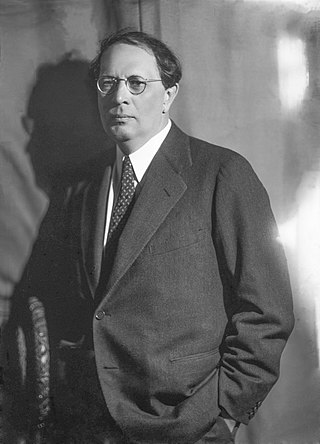
Aleksey Nikolayevich Tolstoy was a Russian writer whose works span across many genres, but mainly belonged to science fiction and historical fiction.
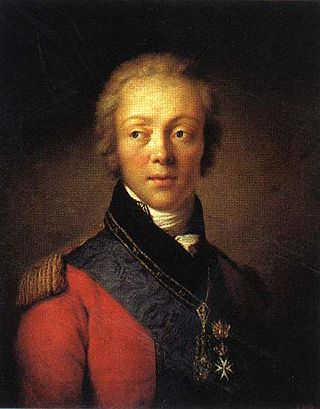
Count Fyodor Vasilyevich Rostopchin was a Russian statesman and General of the Infantry who served as the Governor-General of Moscow during the French invasion of Russia. He was disgraced shortly after the Congress of Vienna, to which he had accompanied Tsar Alexander I. He appears as a character in Leo Tolstoy's 1869 novel War and Peace, in which he is presented very unfavorably.
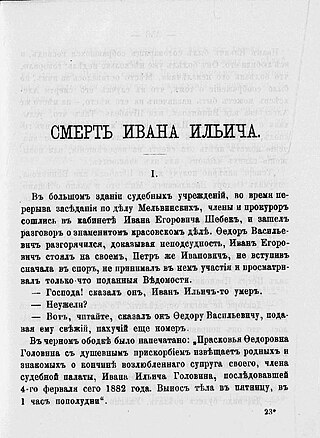
The Death of Ivan Ilyich, first published in 1886, is a novella by Leo Tolstoy, considered one of the masterpieces of his late fiction, written shortly after his religious conversion of the late 1870s.
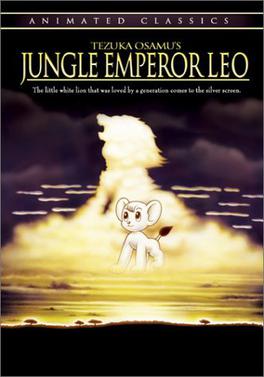
Jungle Emperor Leo, known in Japan as Jungle Emperor The Movie is a 1997 Japanese animated adventure film focusing on the last half of Osamu Tezuka's manga, Jungle Taitei.

Yasnaya Polyana is a writer's house museum, the former home of the writer Leo Tolstoy. It is 12 kilometres (7.5 mi) southwest of Tula, Russia, and 200 kilometres (120 mi) from Moscow.
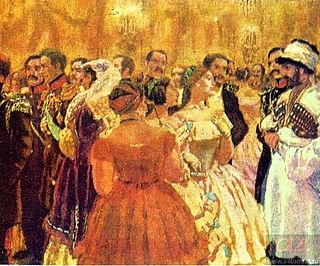
Hadji Murat, also written Hadji Murad is a novella written by Leo Tolstoy from 1896 to 1904 and published posthumously in 1912. Its titular protagonist Hadji Murat is an Avar rebel commander who, to gain revenge, forges an uneasy alliance with the Russians he has been fighting.

"Croesus and Fate" is a short story by Leo Tolstoy that is a retelling of a Greek legend, classically told by Herodotus, and Plutarch, about the king Croesus. It was first published in 1886 by Tolstoy's publishing company The Intermediary. Tolstoy's version is shorter than that by Herodotus, and Tolstoy's characterization of Croesus was designed to parallel the title character in his 1886 novella The Death of Ivan Ilych.
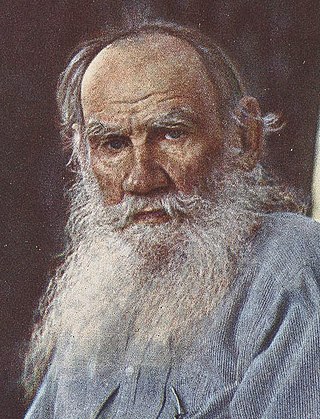
Count Lev Nikolayevich Tolstoy, usually referred to in English as Leo Tolstoy, was a Russian writer. He is regarded as one of the greatest and most influential authors of all time. He received nominations for the Nobel Prize in Literature every year from 1902 to 1906 and for the Nobel Peace Prize in 1901, 1902, and 1909.

Countess Sophia Andreyevna Tolstaya, sometimes anglicised as Sofia Tolstoy, Sophia Tolstoy and Sonya Tolstoy, was a Russian diarist, and the wife of writer Count Leo Tolstoy.

Count Ilya Lvovich Tolstoy was a Russian writer, and the third child and second son of Leo Tolstoy.
"A Lost Opportunity" is an 1889 fable by the Russian writer Leo Tolstoy. The story was included in The Kreutzer Sonata and Other Stories publication of 1889.

Piper Willis is a fictional character from the Australian soap opera Neighbours, played by Mavournee Hazel. The actress went through a long casting process, which involved her travelling to Melbourne to audition three times. Months later, she was offered the role. Hazel then relocated to the city from Sydney within three days, so she was available for fittings and filming the following week. Ahead of her first episode, Piper was introduced to viewers in a four-part webisode series called Hey Piper. She made her first appearance in the main show during the episode broadcast on 16 September 2015. Hazel chose to leave her role to pursue further acting opportunities, and her final scenes aired on 3 April 2019.
Karl Andrew Pillemer is an American sociologist and gerontologist who is the Hazel E. Reed Professor of Human Development at Cornell University, and Professor of Gerontology in Medicine at Weill Cornell Medicine. His research focuses on intergenerational relations in later life, long-term care for frail and disabled older persons, and social engagement and involvement of older persons. Pillemer is the founder of the Cornell Legacy Project, which since 2004 has collected accounts of the life wisdom of over 2,000 older Americans, and the Cornell Family Reconciliation Project, which researches family estrangement.
Twenty-Three Tales is a popular compilation of short stories by Leo Tolstoy. According to its publisher, Oxford University Press, the collection is about contemporary classes in Russia during Tolstoy's time, written in a brief, morality-tale style. It was translated into English by Louise Maude and Aylmer Maude.
















